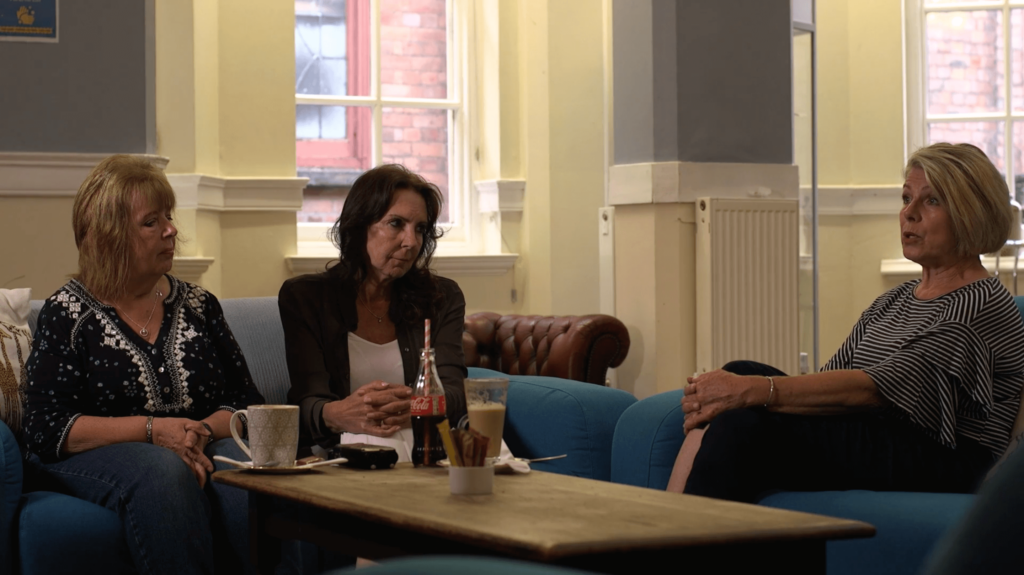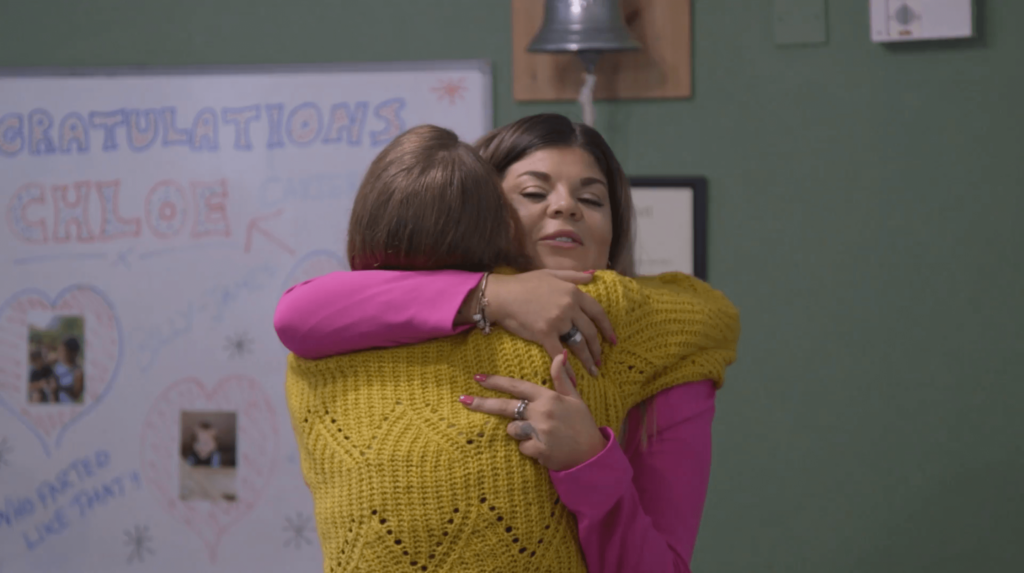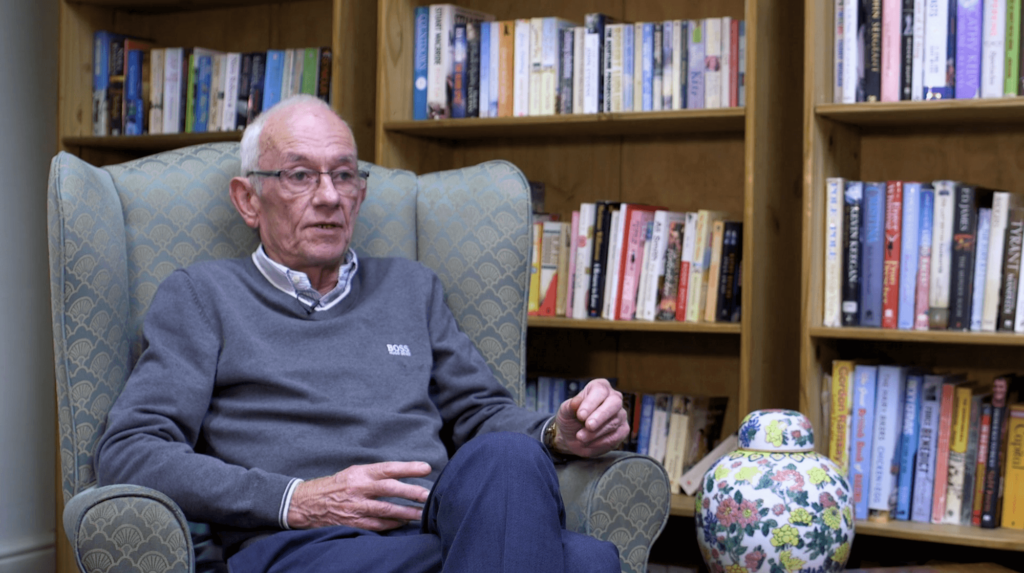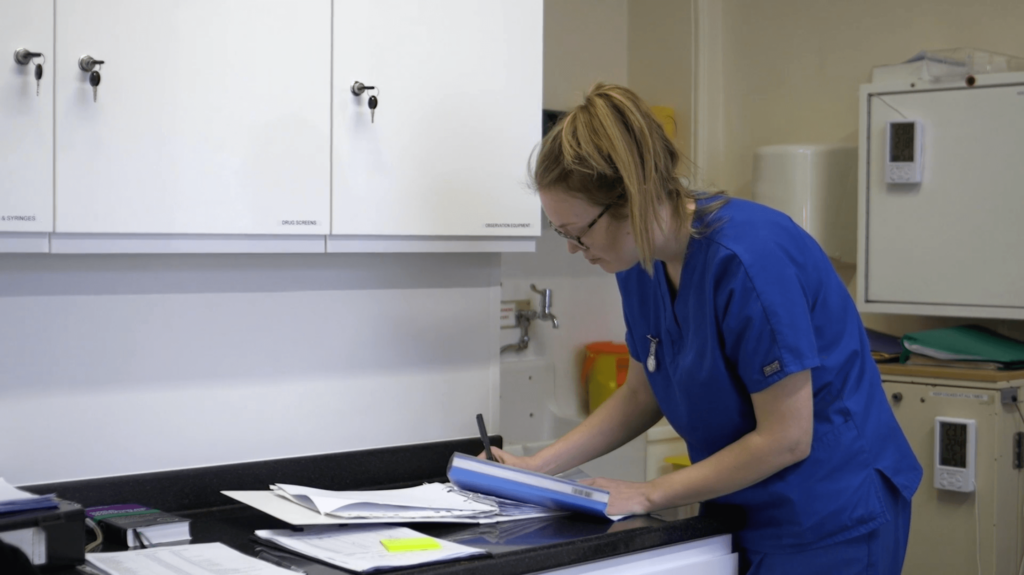By Charlotte Gregory-Ellis (Learning Technologist, Curriculum Development) and Matt Gilooly (Learning Technology Media Advisor / Associate Lecturer in Media Production)
Toni-Marie Benaton, former lecturer at the University, came to the Digital Learning team to discuss how she could be creative with the Substance Use module on the Social and Community Studies programme. Our Media Advisers spoke about creating some media content to use within her teaching to enhance the student’s learning experience. Case studies and simulation videos can be used to create an insight into a ‘real world’ experience. This context is invaluable, so these kinds of videos are a great option to put students in situations they could not experience in a traditional learning environment. This type of video enables students to assess and critique ‘real world’ issues in a safe environment, where there is room for error, whilst offering the opportunity to give an insight into how professionals would operate in their role. The key benefit of this type of video is that it gives students the chance to experience greater interactive participation, allowing students scope for discussions and debate around the issues raised in the videos.
Therefore, in collaboration with Social and Community Studies academics, the Digital Learning team have created a video case study for their students. This video case study, created in this instance, presents a true reflection of a client’s time at the Burton Addiction Centre (BAC) and O’Connor Centre during the 10–12-week rehabilitation programme. It comprises of short videos showcasing each step of the rehabilitation process as well as the support that each of the residences are given to assist them on their journey. Each video is appropriately grouped in line with the different stages of recovery, to form separate topics of conversation, allowing them to work together as a series or as standalone educational resources on the subject. The videos primarily share the experiences which clients go through during the journey, and incorporate both their thoughts and feelings, as well as those of the professionals working alongside them during each stage of their recovery. This inside look into the way the centre works will allow students to gain a realistic insight into the process of rehabilitation and the treatment which can be offered.
The aim of this video package was on three levels;
- To provide the University of Derby with a unique resource for the Substance Use module within the BA Applied Social Work degree programme. There is also scope for it to be used across the department and the University to provide rehabilitation and substance use to be explored.
- To provide a unique opportunity for the University of Derby to increase its strategy of civic duty and working with communities.
- Use of the videos to share expertise for training and development purposes.


Production and partnership working:
The academics worked in collaboration with our Digital Media Producers [UoD staff only link] (DMPs) to co-create these engaging media-rich course materials. The DMP role provides students with the opportunity to increase their digital and industry skills alongside their study, and gain experience working in a professional media production environment. Below we have their insights of how they created the case studies:
Lewis:
Working alongside the academics, we arranged unique access to Burton Addiction Centre (BAC). Working in such an environment brought its own challenges around safeguarding and privacy. However, working with the social workers, we were able to create a series of videos which explain the 14-week rehabilitation process, filming what goes on behind the doors of the BAC – something which really has never been done before. As the interviewer, it was a proud moment to gain the trust of some of the BAC’s clients and allow them to share their stories openly with us, on camera.
Jack:
My favourite part about working in the creative industry is having the ability to turn people’s life experiences into digestible visual content. I get to take audiences on emotional journeys in which they can come away feeling moved, or even have their views changed after opening their eyes to new perspectives. While I enjoy this, I also feel a great deal of responsibility to get it right, because people deserve to have their true stories heard. This speaks true for all the people’s stories within the Substance Abuse Project I worked on.
Every single person working at this rehabilitation centre has an incredible journey to speak of – all the way from the occupants to the staff, and everyone involved in making the place run. It’s human nature to make judgments based on what we see in front of us, but what I hoped to achieve while editing on this project, was to peel back the curtain on these people’s lives and allow the audience to understand how they reach such low points in their lives, and show how it can happen to any of us. And most importantly, show that there is ALWAYS a path back to normality for those open and willing to change.
Something I really felt while editing this project was the strength and pain some of these people have had to go through, and I really wanted to communicate that effectively with the pacing and music within each episode. I came away from this project with a great deal of empathy and respect for these people, and I hope that the viewers of this project will have the same reaction.


How they will be implemented:
The videos will be used in a longitudinal format – either used over a semester, a year or even the full three years of the course. The main module they’ll be used in will be Substance Abuse taught by Catherine John-Baptiste, Senior Lecturer in Social and Community Studies. She will be utilising the videos as an asynchronous resource where students will be assigned a video segment before the lecture and asked questions to reflect on while watching the video. There will be a variety of other resources for students to engage with from online discussions, short online quizzes or a synchronous session during the live seminars. There is scope for different groups of students to be reflecting on different elements and then bringing it together in synchronous discussions for a more in-depth discussion.
There are lots of different opportunities where these video case studies can be used throughout teaching. Catherine will be working closely with our Media Advisers and Learning Technologists to ensure both her and her students are getting the most out of these resources and explore different ways they could be utilised.
The Case Study videos [UoD staff only link] can also be used across the University within other disciplines, where they can look at the process through a different sector lens. Catherine and her team have considered the use throughout Social Care, with Nursing, Criminology and Psychology to name just a few areas. If you are interested in discussing the use of the whole case study or even just one of the videos in your module, please do get in touch with either Matt Gilooly (Media Adviser), m.gilooly@derby.ac.uk or Charlotte Gregory-Ellis (Learning Technologist), c.gregory-ellis@derby.ac.uk